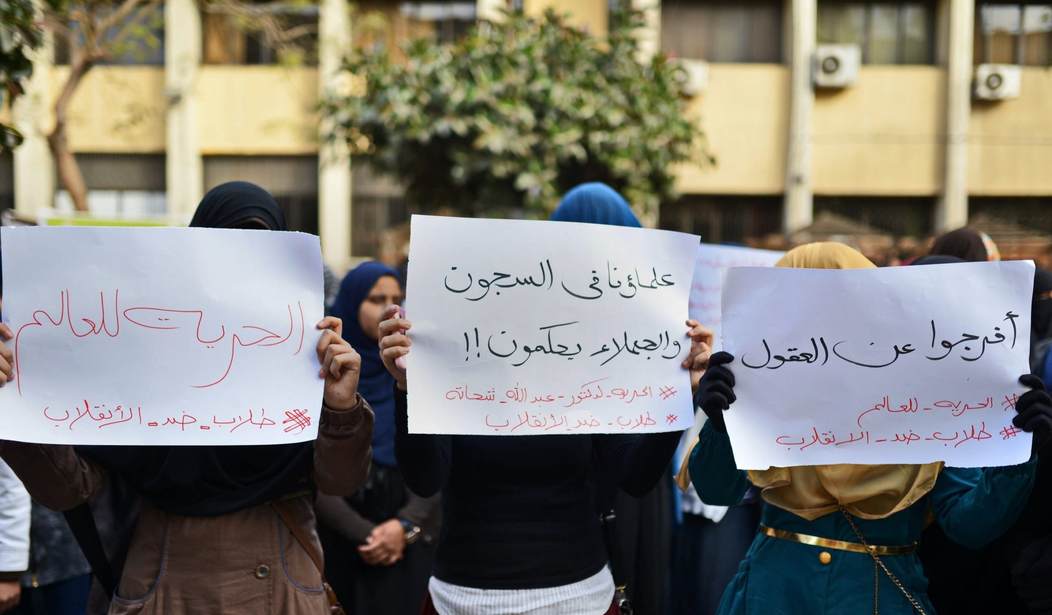ARLINGTON, Va. — An expert in cyber influence operations warned that the Muslim Brotherhood’s online campaigns are on par with the vast, meticulous “chaos ops” devised and orchestrated against Americans by Russia and China.
James Scott is a co-founder and senior fellow at the nonpartisan Institute for Critical Infrastructure Technology, which in October launched the Center for Cyber-Influence Operations Studies in response to the “pandemic” weaponization of digital vectors by nation-states.
At ICIT’s Winter Summit on Monday, Scott said that a center to study malicious influence operations was born out of necessity due to recent election cyber ops and digitized propaganda “coming in from everywhere.”
The manufacturing of dissent that underpins influence ops involves “the weaponization of everything,” with manipulative psychology and propaganda tailored to distinct audiences in a battle for the narrative.
“Traditional media is irrelevant” in this new threat landscape, Scott explained. “The UN is no more relevant than Facebook. Wikileaks knows as much as a CIA analyst. Google is the new gatekeeper to information.”
And it’s a crowded field among influence peddlers with nefarious intent, as “everyone is competing for control of the narrative.”
Russia has run successful influence ops because they “found the vulnerability in the narrative,” Scott said. “If you control the meme, you control the idea … control the narrative, you control the population.”
Technology-based influence operations are especially attractive to malicious actors, he added, because they are “so cheap compared to traditional warfare.”
The biggest type of operation right now is the “chaos op.”
“Chaos is the op; that’s what it is it,” Scott said, describing a skillfully executed digitized propaganda campaign that “granularly injects itself in culture — it’s culturally transformative.”
“We’re focusing specifically on Russia when the reality is we need to be focusing on the process itself,” he added, including “inoculating against process of the meme” that “will manipulate things, then focus in on a target audience” while identifying and exploiting alliance and adversarial relationships.
Memes used in online influence operations are tested first, Scott noted, with the goal of finding a trigger incident and “you create the outcry; you manufacture it.” The meme is tested on platforms such as Instagram and weaponizes hashtags already in use. Twitter use bot technology can then “fan the flame of the organic response.”
In fact, there are services on the dark web that pull together these influence operations for malicious actors, manipulating vectors such as social media, ISPs and even dating sites to “make a digital footprint so deep” that elements of the 2016 campaign ops are still seen online.
“Russia is definitely up there; so is China,” Scott said of key offenders. “So is the Muslim Brotherhood.”
The Muslim Brotherhood’s cyber team stages chaos ops “all the time,” he described, “geared toward fanning flames of illusion that there’s rampant xenophobia here” with the goal to “try to formulate a kinetic impact.” Al-Qaeda has highlighted police shootings of unarmed African-American men in issues of their Inspire magazine, trying to recruit based on sympathy with the plight of minority communities.
After stoking that anger, Scott said, the Muslim Brotherhood will “find those ready to graduate to a new level of extremist ideology.”
Influence operations in future election cycles will include the “normal” cocktail of Russia, China, and Iran, as special-interest groups and PACs are “going to be in and part of the narrative illusions.”
Predicting “memetic skyscrapers,” Scott added, “This is going to be an election unlike anything you’ve ever seen.”
Asked what the inoculation against cyber influence operations would be, he replied, “Unplug.”
“Understand you’re not necessarily getting the correct answer when you type that,” he said, counting “manipulative corporate nation-states” among the online actors feeding selective stories based on a user’s algorithm and metadata.









Join the conversation as a VIP Member